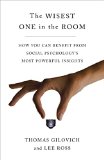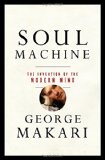new book – ‘The Power of Reading: From Socrates to Twitter’ by Frank Furedi
December 8, 2015
(NOTE: As an Amazon Associate I earn from qualifying purchases.)
Power of Reading: From Socrates to Twitter by Frank Furedi (Bloomsbury USA, 2015)
(kindle ed.), (amazon.co.uk), (UK kindle ed.)
Book description from the publisher:
Eminent cultural and social historian Frank Furedi presents an eclectic and entirely original history of reading. The very act of reading and the choice of reading material endow individuals with an identity that possesses great symbolic significance. In ancient Rome, Cicero was busy drawing up a hierarchy of different types of readers. Since that time, people have been divided into a variety of categories–literates and illiterates, intensive and extensive readers, or vulgo and discreet readers. In the 19th century, accomplished readers were praised as “men of letters,” while their moral opposites were described as “unlettered.” Today, distinctions are made between cultural and instrumental readers and scorn is directed toward the infamous “tabloid reader.”
Power of Reading explores the changing meanings attributed to the act of reading. Although it has a historical perspective, the book’s focus is very much on the culture of reading that prevails in the 21st century. It is a fascinating insight into understanding the post-Gutenberg debates about literacy in a multimedia environment with such a strong emphasis on the absorption of information. Taking a cue from George Steiner, Furedi argues vigorously for the restoration of the art of reading–every bit as important as the art of writing.
Google Books preview:
See also: Author’s website






